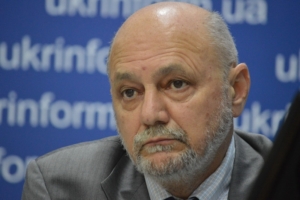
Sam Kliger, director of Russian-Jewish Community Affairs at the American Jewish Committee and chairman of EDI’s board
Commentary by Sam Kliger, director of Russian-Jewish Community Affairs at the American Jewish Committee.
In the 2012 and 2008 elections, 70 to 75 percent of these émigré voters cast ballots for the Republican presidential candidates Mitt Romney and John McCain, respectively, says Sam Kliger, the director of Russian Jewish Community Affairs at the AJC. In this presidential election, Kliger predicts the percentage of Republican voters in the Russian Jewish community is likely to dip slightly to 60 to 65 percent, a trend which Kliger says might be caused by the uptick in the number of second-generation immigrants who, unlike their parents, were educated in the United States and tend to veer more to the left on the political spectrum. The older generation, Kliger says, “despises socialism and communism.”
BRIGHTON BEACH, New York — As the clock strikes 7 o’clock in New York City, radio talk show host Victor Topaller, once dubbed the Russian Rush Limbaugh because of his conservative views, leans into his microphone and kicks off another evening of discussion on the topic that has glutted U.S. airwaves for more than a year: the presidential election.
Topaller’s Russian-language program, which is sprinkled throughout with English terms such as “electoral college” and “majority,” caters to a niche audience made up almost entirely of people who emigrated from the former Soviet Union in the 1980s and early 1990s, eventually resettling in the New York City area, Boston and pockets of California and Florida. Like many of his listeners, Topaller, who broadcasts from Brooklyn, is almost always a down-ballot Republican, the current presidential race being no exception.
While Donald Trump’s inflammatory rhetoric and promises to crack down on immigration have isolated immigrant communities in the run-up to the U.S. presidential election in November, the conservative voting bloc of Russian-speaking Soviet émigrés who have congregated in neighborhoods such as New York’s Brighton Beach and Sheepshead Bay far prefer the gregarious business tycoon to his Democratic opponent, Hillary Clinton.
“Based on our options, Trump is the best choice. Hillary (Clinton) would be a catastrophe for America and for the world,” Topaller says, repeating his key talking points about the Republican and Democratic nominees.
Despite the Trump campaign’s murky business ties to Russian business and political groups, many Russian-speaking émigrés still support the GOP candidate, certain that any Democratic candidate – and especially Hillary Clinton – would pose the real threat to national security.
Topaller, who also has two shows on the Russian-language RTVi television station and another local political radio show, is no Trump fan, but for him and much of his audience, any concerns about the candidate have been waylaid by a visceral loathing of the political left.
Topaller, like the majority of the Russian-speaking émigrés interviewed, is Jewish and left his home in Moscow, in part, to escape anti-Semitism that was pervasive in the former Soviet Union. The American Jewish Committee (AJC) estimates that 750,000 Jews from the former Soviet Union now live in the United States and more than half reside in the New York City area with large communities in Brooklyn and New Jersey. (Approximately 2,895,000 U.S. citizens self-reported as ethnically Russian and one million identified as Ukrainian, according to recent census data.)
In the 2012 and 2008 elections, 70 to 75 percent of these émigré voters cast ballots for the Republican presidential candidates Mitt Romney and John McCain, respectively, says Sam Kliger, the director of Russian Jewish Community Affairs at the AJC. In this presidential election, Kliger predicts the percentage of Republican voters in the Russian Jewish community is likely to dip slightly to 60 to 65 percent, a trend which Kliger says might be caused by the uptick in the number of second-generation immigrants who, unlike their parents, were educated in the United States and tend to veer more to the left on the political spectrum. The older generation, Kliger says, “despises socialism and communism.”
Gary Gindler, a Ukrainian Jewish émigré and a dyed-in-the-wool Republican, says that growing up he had to memorize Karl Marx’s “Communist Manifesto” and various tomes by Vladimir Lenin. Gindler says he had $800 when he arrived in the United States. Within two years, he found a job, purchased a house for his wife and two children, and had changed his name from Igor to Gary. Though apolitical at first, Gindler started picking up on the cadence of American politics after he received citizenship in September 2001.
He says, however, he was disappointed when he realized that his son and daughter were receiving an education, like the vast majority of Americans, in “Marxist” educational institutions, despite their father’s experiences. “My children were very pro-Democrat when they graduated high school. All their teachers were these nice young liberal types – of course they supported the Democrats,” he says, sipping on his Coca-Cola. “I hope their opinions have started to change,” he says, adding that he believes high income taxes could quickly turn them into appreciative conservatives.
Such views pose a contradiction, according to Pat Singer, founder and executive director of the Brighton Neighborhood Association. Singer has lived in the community for more than 40 years and has seen the Brighton Beach area change from a crime-ridden outpost near Coney Island into a Russian-speaking enclave in the 1980s. While Singer says she is proud of the transformations the neighborhood has gone through, she is frustrated by many of the residents’ Republican sympathies.
“I see time and time again Russian people coming here and, I help them fill out the forms for food stamps and to get different [housing and medical] subsidies,” she says, sitting at her office desk that brims with elephant tchotchkes. To her right is a sun-kissed picture of a young Hillary Clinton; to her left is a picture of Bill Clinton. “They’re completely dependent on government and here they are bragging they’re going to vote for Trump. I don’t put my opinion here, but I think to myself, ‘How can you do that?’.”
Answering her own question, Singer says, “Well they came here because (Ronald) Reagan supported them coming into this country and they see the Republican Party as strong, something that can stand up to Putin.”
People interviewed have a universal dislike of Russian President Vladimir Putin, but recent headlines about Trump’s affinity for Putin and the Russian leader’s appreciation of Trump’s colorful mannerisms are written off as meaningless political rhetoric. Even the money trail connecting Trump’s former campaign manager, Paul Manafort, to ousted Ukrainian leader Viktor Yanukovych are viewed as unpleasant, but just a part of the politics. Trump, after all, was not the one receiving money, many say.
“I’m not comfortable with all those connections, but political operatives are, by nature, corrupt; Trump didn’t do anything,” says Raya Tubman, who emigrated 36 years ago from the Soviet Union to New York. Conversely, Tubman claims Clinton lies. “She’s part of the old system, you know what I mean? She’s a copy of Obama.”
Many in the Russian community also support Trump’s promise to cut back on the number of immigrants allowed into the United States. Trump’s dichotomy of good and bad immigrants with the latter category having the potential to turn into terrorists, resonates well in the community. “He’ll protect us,” says Luda Semyon, a pensioner who left Odessa in the early 1990s. How does she know? “He’s a real man, and he’s not Clinton.”
Origin – usnews.com

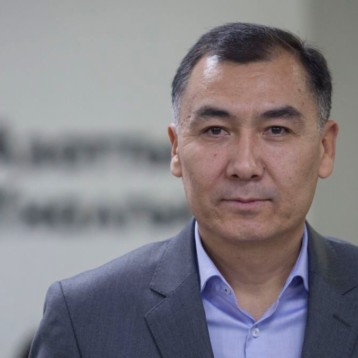
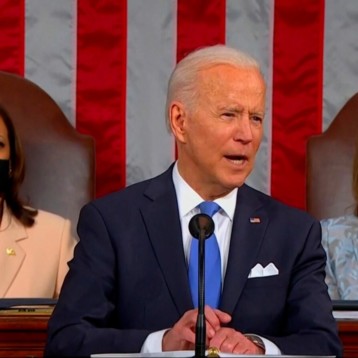
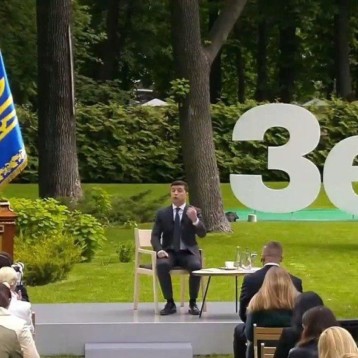
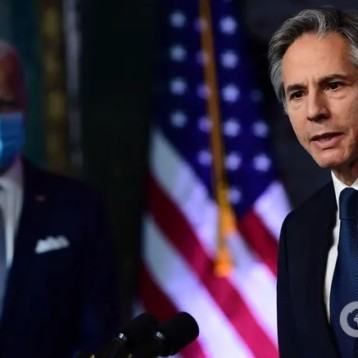
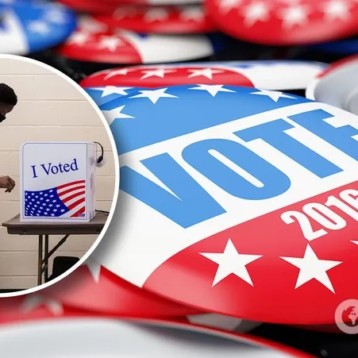
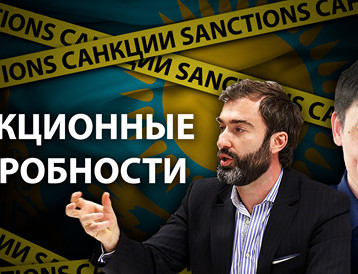
You must be logged in to post a comment.